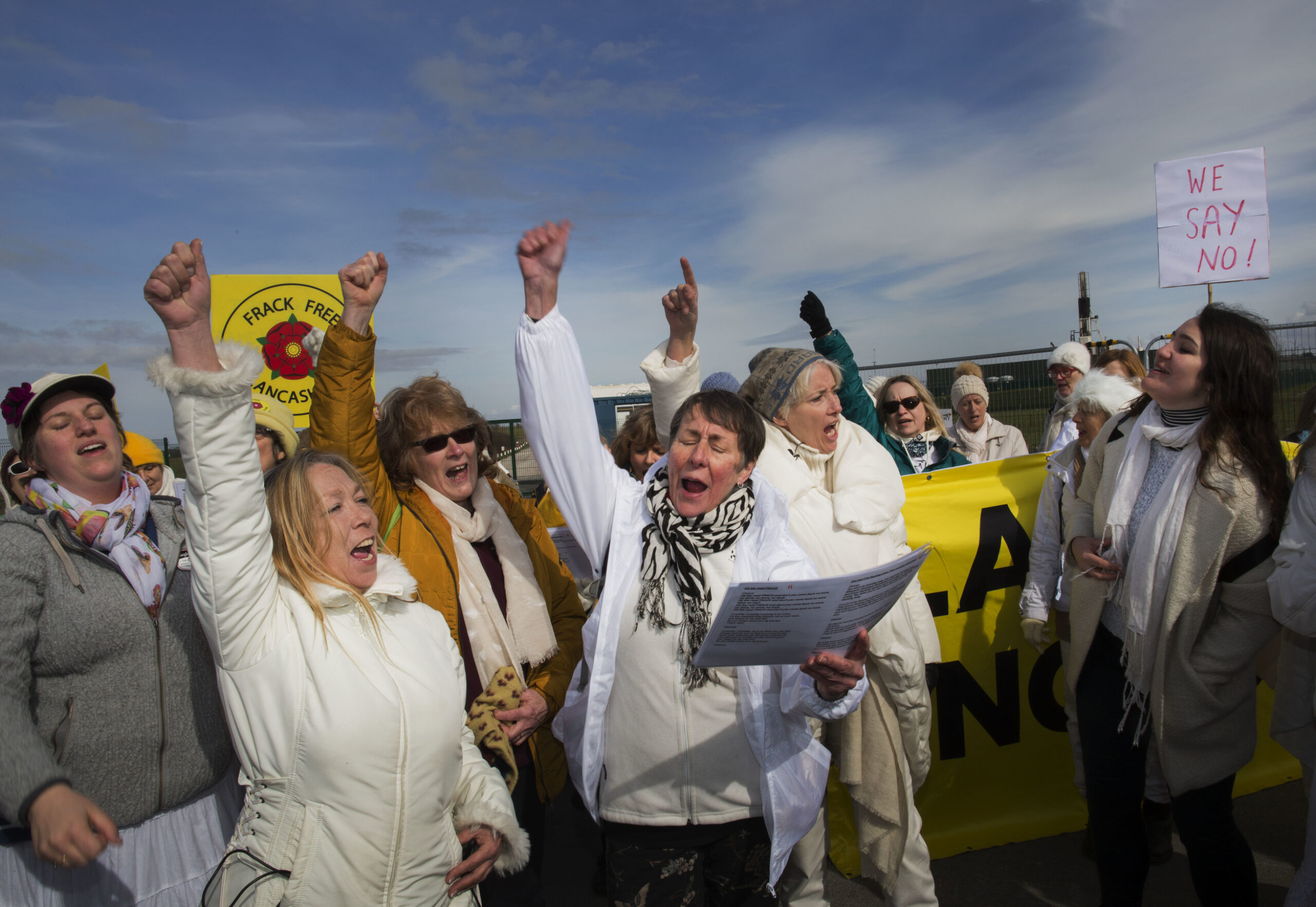
- Article
Fracking halted in massive climate victory – but it’s not yet completely banned
The government has announced an immediate stop to fracking for oil and gas, saying it is “following the science” on the increased likelihood of earthquakes near drilling sites.
This doesn’t mean fracking is completely banned in England – not yet at least. But even so, the surprise announcement represents a huge leap forward for people living near fracking sites who have campaigned tirelessly for years.
It’s also a hard-earned victory for environmentalists across the UK, who battled against the fracking industry and its supporters in government for years, likely causing public opinion to steadily shift against it.
Activists also oppose fracking on the grounds that fossil fuel extraction must be phased out if the government is serious about tackling the climate emergency.
Why has fracking been halted, and why now?
The fracking moratorium is thought to have been triggered by a report from the UK Oil and Gas Authority into earthquakes caused by fracking. The report stated that it was not possible to predict whether fracking would cause tremors and how strong those tremors would be.
However it’s also hard to ignore the timing on the eve of a general election where MPs have been warning that support for fracking is losing votes.
There has been plenty of evidence of seismic activity. Earlier this year, fracking company Cuadrilla caused earthquakes up to well over the limits set by regulations, with a tremor of 2.9 magnitude in Lancashire.
The government has stopped short of an outright ban, however, suggesting plans to frack could be revived if it could be proved it could be done safely. But scientists say it is unlikely fault lines, and therefore earthquakes, can be avoided when drilling with current fracking technology.
Aside from potential earthquakes, fracking would definitely make it even more difficult for the UK to meet its emissions targets and put the brakes on the climate crisis. Drilling for more fossil fuels when we should be moving swiftly to cleaner energy has never made sense.
What’s the impact on the fracking industry?
It’s bad news for the industry, which has already complained that strict controls on tremors mean fracking will be unable to make a profit.
It has also become clear that UK fracking would never reach the levels of production and profit seen in the US, where local landowners were able to make significant sums of money by selling drilling licenses.
The realities of the UK’s geography and geology are likely to mean that fracking is unlikely to be viable, and therefore not an attractive prospect for energy investors.
While there is skepticism from political opponents on the reasons for the pause, rowing back could be difficult for any future government. The likelihood of earthquakes from fracking is unlikely to change. Neither is the strength of local opposition, who kept the pressure against the industry up and continued to protest despite heavy police presence and arrests.
This also means that companies who might have wanted to start fracking in the UK might think about putting their money elsewhere.
Whatever the reasons, that fracking is off the cards for the foreseeable future is still well worth celebrating.
Does this mean the government is tackling the climate emergency?
Not really. On the same day as the fracking announcement, the government approved the UK’s first deep coal mine in decades. And exploration and production of oil and gas that does not involve fracking – like conventional drilling – are still allowed.
That’s why Greenpeace and many other organisations have written to the main political parties to demand an accelerated timetable for bringing the country’s net carbon emissions down to zero.
That means ditching all fossil fuels, not just gas from fracking.
